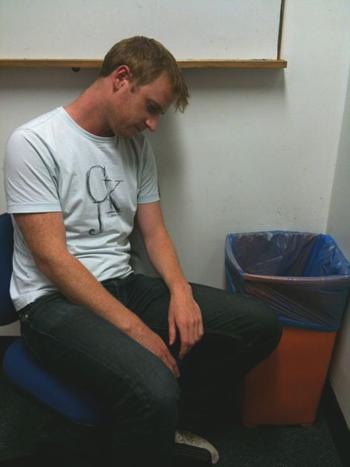The Ultimate Therapist
I came across a humorous post on the internet:
“Someone’s therapist knows all about you.”
It made me laugh… and think. I thought back to many therapy sessions I engaged in, talking about certain individuals and their impact of my life, disorder and state of mind. I talked about my mother, my dad and my childhood bullies. Believe me, I had A LOT to say. So, yes, even though my therapist never met them, she knew all about these people.

But this humorous post touched on something bigger. It wasn’t just about the acquired knowledge a therapist gained when his/her patient ranted about their issues. It had to do with God – the ultimate therapist-and His role in our lives as we struggle, hurt and encounter recovery.
For the word of God is quick, and powerful, and sharper than any two-edged sword, piercing even to the dividing asunder of soul and spirit, and of the joints and marrow, and is a discerner of the thoughts and intents of the heart. Hebrews 4:12>
Cue the heart, therefore:
Keep thy heart with all diligence; for out of it are the issues of life. Proverbs 4:23
For as he thinketh in his heart, so is he… Proverbs 23:7
But this heart issue is not a passive thing, ignored by God. Quite the contrary, in fact.
“…the LORD seeth not as man seeth; for man looketh on the outward appearance, but the LORD looketh on the heart.” 1 Samuel 16:7
For the word of God is quick, and powerful, and sharper than any two-edged sword, piercing even to the dividing asunder of soul and spirit, and of the joints and marrow, and is a discerner of the thoughts and intents of the heart. Hebrews 4:12
In other words…
The Ultimate Therapist Read More »


 insidious plan in our lives. We cannot quiet in His love if focused on these demons. But we must. It is a non-negotiable daily part of our joy in Him. These demons will flee as we quiet in His love!
insidious plan in our lives. We cannot quiet in His love if focused on these demons. But we must. It is a non-negotiable daily part of our joy in Him. These demons will flee as we quiet in His love!



 Recovery involves the entire person: spiritual, physical, emotional and mental. You can recover from abuse, addiction, eating disorders, anxiety, shame, guilt, anger, alcoholism, codependency, suffering, grief, depression and more!
Recovery involves the entire person: spiritual, physical, emotional and mental. You can recover from abuse, addiction, eating disorders, anxiety, shame, guilt, anger, alcoholism, codependency, suffering, grief, depression and more!